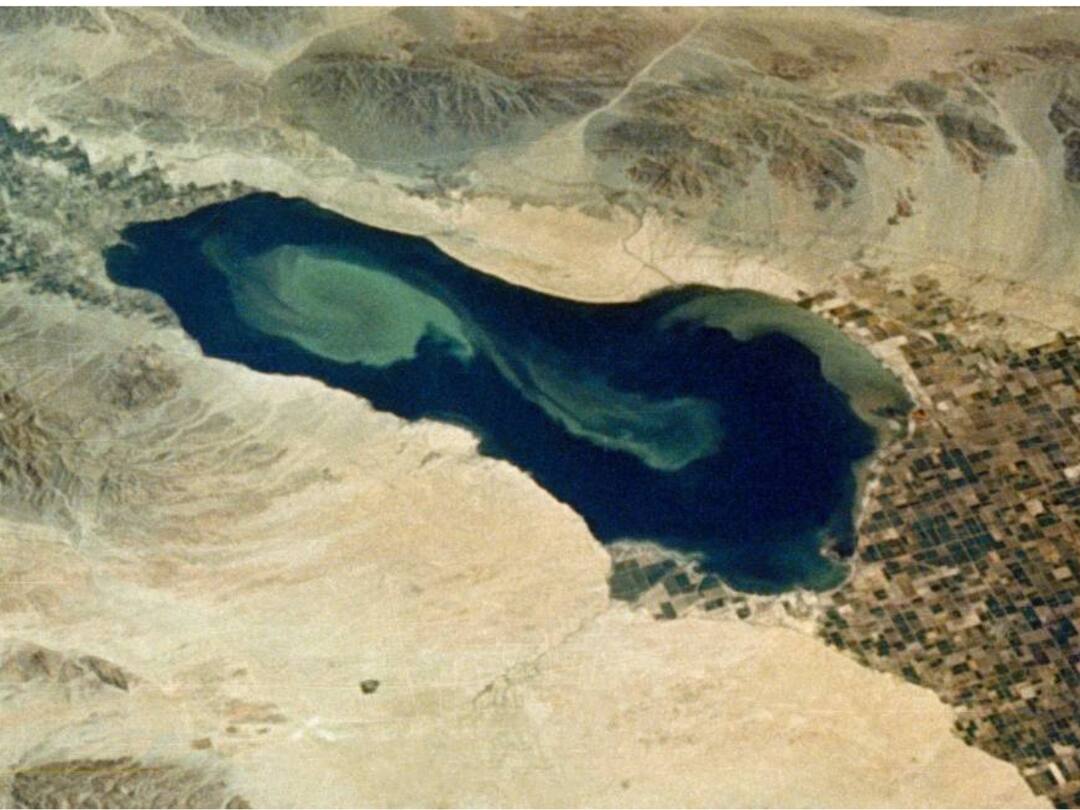More Than Half Of The World's Largest Lakes Are Losing Water, Satellite Images Show. Study Explains Why
A decline in water storage in the world's largest natural lakes and reservoirs has occurred over the past three decades. Lakes store 87 per cent of Earth's liquid surface fresh water.

More than half of the world's largest lakes are losing water, satellite images show. Climate change, unsustainable human consumption, and sedimentation are the key reasons behind this decline in global lake water storage, according to a study published May 18, 2023 in the journal Science.
The decline in water storage in the world's largest natural lakes and reservoirs has occurred over the past three decades. Both human and climatic drivers have contributed to this decline. Lakes store 87 per cent of Earth's liquid surface fresh water, but climate change and human activities threaten these water bodies.
The 1972 largest global lakes analysed
As part of the study, the researchers analysed the 1972 largest global lakes using three decades of satellite observations, climate data and hydrologic models. They analysed 2,50,000 lake-area snapshots captured by satellites during this period, according to the University of Colorado Boulder.
Storage declines observed for 53 per cent of the 1972 largest lakes from 1992 to 2020
The researchers found "statistically significant" storage declines for 53 per cent of the 1972 largest global lakes over the period 1992 to 2020, the study said. The authors noted that the water decline is equivalent to 17 times the volume of Lake Mead, the largest reservoir in the United States.
ALSO READ | The Science Of Health: What Is Preeclampsia, Why It Occurs, And How Pregnant Women Can Prevent It
Increasing human water consumption and sedimentation driving water loss
There is increasing evaporative demand, which quantifies the potential loss of water from the surface driven by atmospheric factors such as temperature, wind speed, humidity and cloud cover. This, along with increasing human water consumption and sedimentation, has accelerated the decline of the world's largest lakes. The study said that sedimentation dominates storage losses in reservoirs.
The lakes flowing through both dry and wet regions are losing volume, with the losses in humid tropical lakes and Arctic lakes indicating more widespread drying trends than previously understood. About one-quarter of the world's population resides in the basin of a drying lake.
ALSO READ | Science For Everyone: The Importance of Greenhouse Gases, And Their Role in Climate Change
About 43 per cent of drying lakes influenced by climate change
About 43 per cent of drying lakes were at least partially influenced by climate change because water losses are dominated by changes in temperature, potential evapotranspiration, or runoff, the study said.
Factors driving partial drying of Arctic lakes
Changes in temperature, and potential evapotranspiration are responsible for the partial drying of Arctic lakes. Potential evapotranspiration refers to the combined loss of water through the plant's process of transpiration via its vascular system, and the evaporation of water from the Earth's surface, both of which are influenced by temperature, humidity, sunlight and wind.
Increasing evaporation is also resulting in changes in runoff.
ALSO READ | Did Humans Originate From A Single Place In Africa? Study Rejects Old Theory, Presents New Timeline
Large reservoirs also witnessed water storage declines
According to the study, nearly two-thirds of all the large reservoirs in the world experienced significant water storage declines.
How water loss affects carbon cycles
Water losses affect both the water and carbon cycles. Widespread decline of lake water storage, particularly accompanied by increasing lake temperatures, could reduce the amount of absorbed carbon dioxide, and increase carbon emissions to the atmosphere, because lakes are hotspots of carbon cycling, the authors noted in the study.
Some large lakes experienced water gains. Here’s why
The authors wrote that roughly 24 per cent of the large lakes experienced significant water gains, due to the construction of dams. These lakes are found in remote or underpopulated regions, such as the Inner Tibetan Plateau, and the Northern Great Plains of North America.
In the Tibetan Plateau, glacier retreat and permafrost thawing partially drove alpine lake expansion.
The Upper Mississippi River basin, a region where precipitation is projected to increase under warming, also saw increased lake water storage.
More than 85 per cent of the newly filled reservoirs are concentrated in a few basins where dams are being constructed, such as the Nile, Yangtze, Volta, Peal, Amur, Tocantins, Mekong, Rajang, Yellow and Uruguay basins, and in western India, the study said.
Lake Sevan in Armenia experienced an increasing water storage trend due to the enforcement of conservation laws on water withdrawal since the 2000s.
Why is better water management important?
Better water management will help protect essential ecosystem services such as freshwater storage, waterbird habitat, food supply, cycling of pollutants and nutrients, and recreation, H. Jesse Smith, Senior Editor, Science Magazine, wrote on the paper.
The authors concluded that they detected that increasing temperature and potential evapotranspiration are the chief determinants of water loss in 21 per cent of drying natural lakes, and this is a cautionary finding for a projected warmer future, because it underscores the importance of accounting for climate change and sedimentation impacts within future surface water resource management.







































